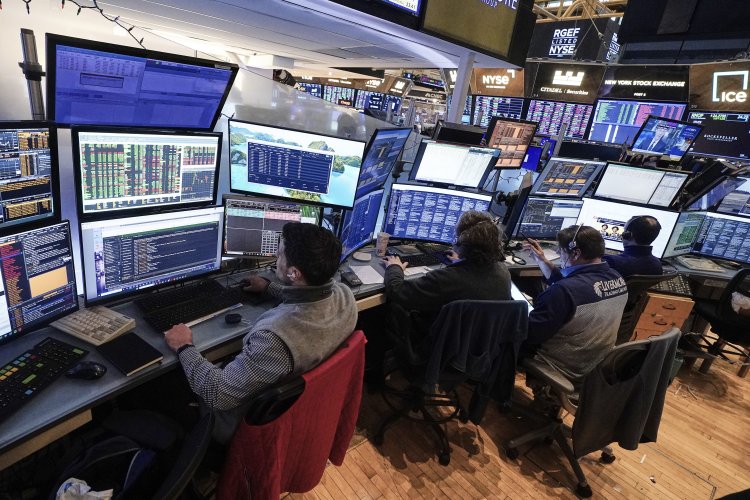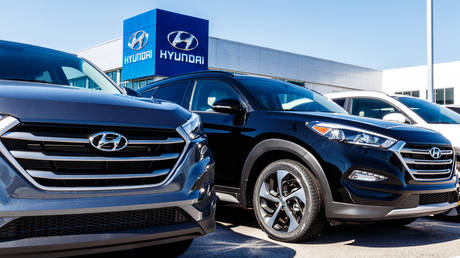Growing Pessimism About Economy Among Americans Serves as a Warning Sign for Trump
Trump's previously strong stance on the economy is now transforming into a significant liability, as several polls this week indicate a rise in disapproval ratings related to economic performance.

Historically, the economy has been one of Trump's strengths. He promoted his economic policies during his campaign, criticizing the Biden administration for inflation and branding himself as the "Art of the Deal" candidate. However, following a wave of tariffs that unsettled markets and raised global economic concerns, support for Trump's economic strategies appears to be waning.
Multiple recent polls reflect these troubling signs for the White House.
According to a new Reuters/Ipsos poll released Wednesday, only 37 percent of respondents approve of Trump’s economic agenda, a decline from the 42 percent approval recorded shortly after his inauguration in January.
Pew Research Center's survey, also released Wednesday, shows a drop in confidence, with only 45 percent of Americans expressing confidence in Trump's economic stewardship — the lowest figure in Pew's tracking of Trump since 2019. This marks a significant decrease from the 59 percent confidence level noted right after the 2024 election last November, indicating a 12-point decline among Republicans alone since that time.
Adding to Trump’s challenges, CNBC's All-America Economic Survey earlier this week reported that the president has hit his “worst economic approval numbers of his presidential career,” with a disapproval rate of 55 percent compared to 43 percent approval. This represents his first negative net economic rating from CNBC during his presidency. The polling revealed a stark partisan divide but highlighted that independents are now 23 points more pessimistic than they were during Trump's first term.
The negative sentiment is exacerbated by Trump's announcement of sweeping "reciprocal tariffs" on April 2, a day the administration labeled "Liberation Day." Trump contended that these tariffs would recalibrate economic relationships and address trade imbalances. Nevertheless, as markets plummeted and global leaders criticized the tariffs, Trump opted for a 90-day pause on the measures, maintaining a 10 percent baseline and signaling a willingness to negotiate.
The White House has not provided immediate comments regarding the recent surveys, but Trump has staunchly defended his economic agenda, asserting that the tariffs would generate billions for the U.S. and bolster the manufacturing sector. “Everyone's going to be happy," Trump told reporters on Wednesday. “We're going to make a lot of money for our people. We'll be able to lower taxes substantially, and we're going to be proud of ourselves. We're not going to be a laughing stock that got taken advantage of by virtually every country in the world."
Despite Trump's optimistic rhetoric, many Americans are not in favor of the tariffs. Pew found that 59 percent of respondents disapprove of the tariff increases, while only 39 percent approve. This disapproval splits along party lines, with 70 percent of Republicans approving and 90 percent of Democrats disapproving. CNBC reported that 49 percent disapprove of universal tariffs, with majorities asserting they negatively impact American workers, inflation, and the overall economy.
Although the initial market panic triggered by Trump's tariffs subsided following the 90-day pause, economic uncertainty continues as Trump has criticized Federal Reserve Chair Jerome Powell and promised a series of trade deals that may take time to develop.
In the midst of this back-and-forth, surveys indicate that the broader economic outlook for many Americans is increasingly bleak. A recent Gallup poll revealed that 53 percent believe their personal financial situation is deteriorating, with pollsters noting that Americans are feeling “unusually pessimistic” about their finances. Inflation predictions have also risen significantly, with 63 percent anticipating increased inflation compared to 52 percent in January, according to Gallup. Furthermore, 60 percent of CNBC poll respondents disapprove of Trump’s inflation management, while only 37 percent approve.
Concerns about a potential recession are also growing. Reuters/Ipsos reports that 76 percent of respondents fear a recession may be on the horizon, with these concerns stretching to Republicans as well. One in four Republicans expressed that Trump’s economic approach is "too erratic," according to the poll.
While Trump's overall job approval rating has seen a slight decline, he still retains substantial support among his Republican base, with over 70 percent approving of his overall job performance, as indicated by Pew.
The Reuters/Ipsos poll surveyed 4,306 U.S. adults from April 16 to April 21, with a margin of error of plus-or-minus 2 percentage points. Pew’s survey was conducted from April 7-13, interviewing 3,589 adults with a margin of error of plus-or-minus 1.8 percentage points. Gallup's poll included 1,006 adults from April 1-14, with a margin of error of plus-or-minus 4 percentage points. CNBC’s survey polled 1,000 adults from April 9-13, with a margin of error of plus-or-minus 3.1 percentage points.
Allen M Lee for TROIB News
Find more stories on Business, Economy and Finance in TROIB business












